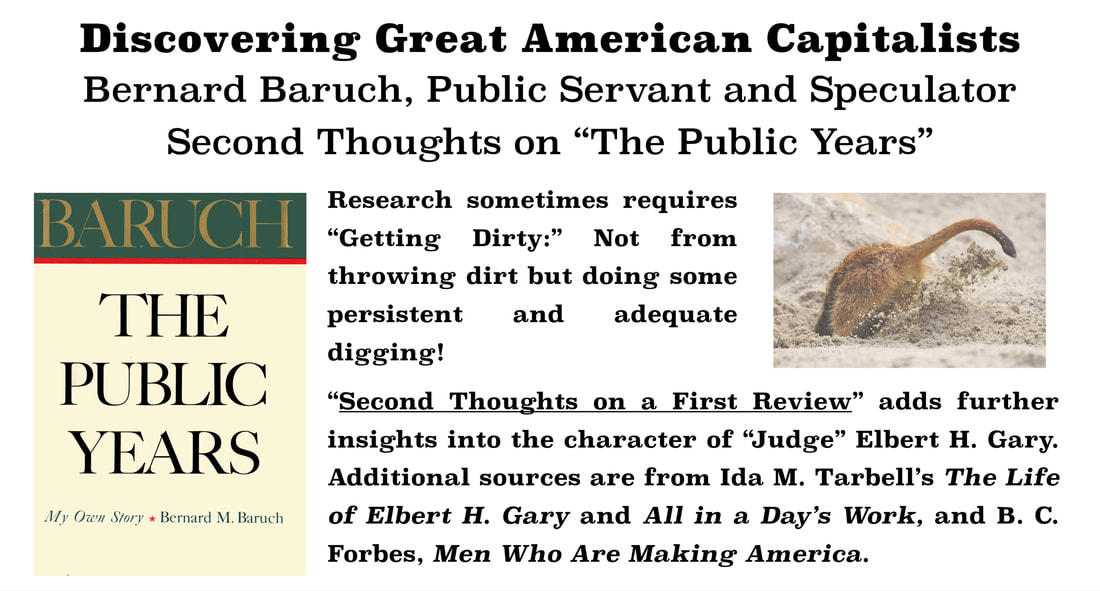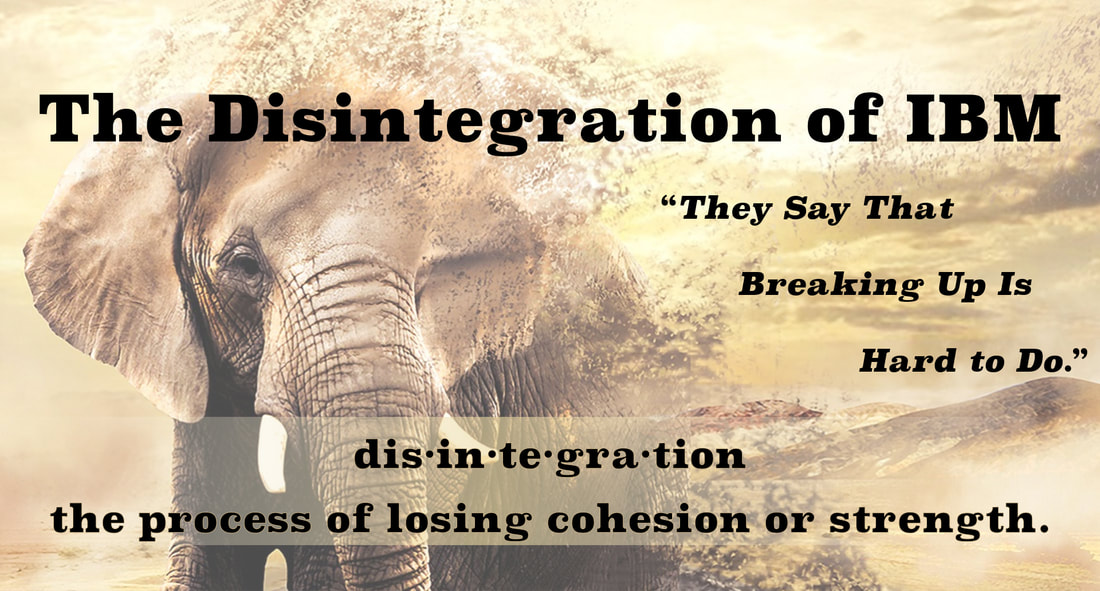A Second Review of Bernard Baruch's "The Public Years."I learned from this experience to be careful referencing “authoritative sources.” I believe that all men are human, and that Baruch either never read, failed to read, or for some other (so far) undiscovered reason failed to consider the additional published works that discussed Judge Gary. But isn’t this human? Yes, but disappointingly so for Bernard Baruch, a man who was obviously so well spoken and so highly perceived by the public and by many of his peers. I expected more and need to be more careful in my own writings. This is my lesson learned concerning this second thought on a first review: Humility. Cheers, - Pete Select the image or link below to read some second thoughts on a first review.
0 Comments
B. C. Forbes Describes Andrew Carnegie in One Very, Very Long Sentence"If I were to attempt to describe Andrew Carnegie in one comprehensive sentence I would say:
B. C. Forbes, Men Who Are Making America Yes, it was a rather long, comprehensive sentence, wasn't it? Then again, from what I have read, Mr. Forbes hit the Andrew Carnegie personality-nails on their heads. Too many fail to convey the complexity of the man—even in whole books about him. They are failed attempts. This, though, is a nice piece of prose about a complex, yet great individual. Peter E. Greulich B.C. Forbes hit the Carnegie personality-nails on their heads in this sentence. Select one of the links below the image to read more. Home Page for Virginia M. (Ginni) Rometty's Key Performance Indicators.Virginia M. (Ginni) Rometty never understood that the individuals in her sales force who gave their customers one hundred percent could carry only twenty-five percent of the burden. The sales force needed a chief executive officer who, as a saleswoman-in-chief, could build an organization to provide the other seventy-five percent that makes selling possible. Perhaps her failures over the last eight years can mentor today’s chief executive officers, and if these past mistakes are corrected, all stakeholders should see better corporate performance ahead—if not, they should expect more of the same. She disregarded all the warning signs of imminent disaster—more comparable to a destroyer’s commander who maintains course and speed while headed towards an iceberg. There will be little doubt after reviewing the data in these coming articles that Ginni Rometty’s tenure is not that of a chief executive presiding over a difficult transition—some have compared her to a captain turning a battleship. Select image for Ginni Rometty's Key Performance Indicators - F. G. (Buck) Rodgers: "Mr. IBM's" Perspective on Change A Realistic Perspective in a Distributed, Decentralized, Decision Making Organization "We live in a changing world and the future cannot be predicted with certainty. That's an obvious statement, but how we deal with change and the future is not so obvious. "Change can be an ally when your company is alert and sensitive and has its antennae reaching in all directions, picking up all the signals around you. "Of course, change will be your enemy if it catches you by surprise. You must control change--or change will control you. "To the fearful, change is threatening. They know that things will somehow get worse. The hopeful have faith that change will make things better. But to those special people who love a challenge and are "light on their feet," change is stimulating and exciting. They are the people who can make a difference. They can make a company. "The people who make things happen are in demand and should be guarded jealously. Those who watch things happen and those who aren't sure what's happening are left behind." Buck Rodgers, The IBM Way - Louis V. (Lou) Gerstner's Perspective on Change An Myopic Perspective in a Centralized, Controlling, Hierarchical Organization "Nobody likes change. Whether you are a senior executive or an entry-level employee, change represents uncertainty and, potentially, pain. So there must be a crisis, and it is the job of the CEO to define and communicate that crisis, its magnitude, its severity, and its impact. "Just as important, the CEO must also be able to communicate how to end the crisis--the new strategy, the new company model, the new culture." Louis V. Gerstner, Who Says Elephants Can't Dance? - This Author's Perspective and Thoughts Put these two insights together you come up with this:
Evidently, Gerstner surrounded himself with fearful people--who saw change as threatening. So, he had to motivate them and everything depended on him to end a crisis. Buck Rodgers surrounding himself with "special people," who loved a challenge and were "light on their feet." Surrounded by these individuals, he had antennae reaching in all directions to see change coming and exploit it. You decide which of these executives created a work environment that was stimulating and exciting. Which executive would you want to work for? An Analysis of the Kyndryl Divestiture and Its Future Effects on IBM.The announcement of the breakup of IBM will only exacerbate the company’s current most-pressing problem, not cure it. The spike in stock price is a “Wall Street” phenomenon, not a “Main Street” or “Stakeholder” affirmation of the decision. Reality will set in soon enough because when it comes to business fundamentals, Main Street has proven itself better able to understand long-term realities than Wall Street ever has. IBM employees are closer to reality at IBM than any of its other main-street stakeholders—even customers, and this announcement will have negative effects that will play out over the next few years. This move will affect employee engagement, and employee sales productivity, in all probability, will continue its two-decades-long decline. Unfortunately, looking back on recent IBM chief executive officer history, Arvind Krishna is more of the same. He, like his 21st Century predecessors, is selling to Wall Street not his long-term stakeholders. Select the image of link below to read the Kyndryl Analysis. |
Peter E. GreulichPeter E. has been studying IBM and early American corporate history since his retirement in 2011. These are his thoughts and musings, and of those whose biographies and autobiographies he has read with links to articles and book reviews on this website. Contact the author directly.
|





 RSS Feed
RSS Feed